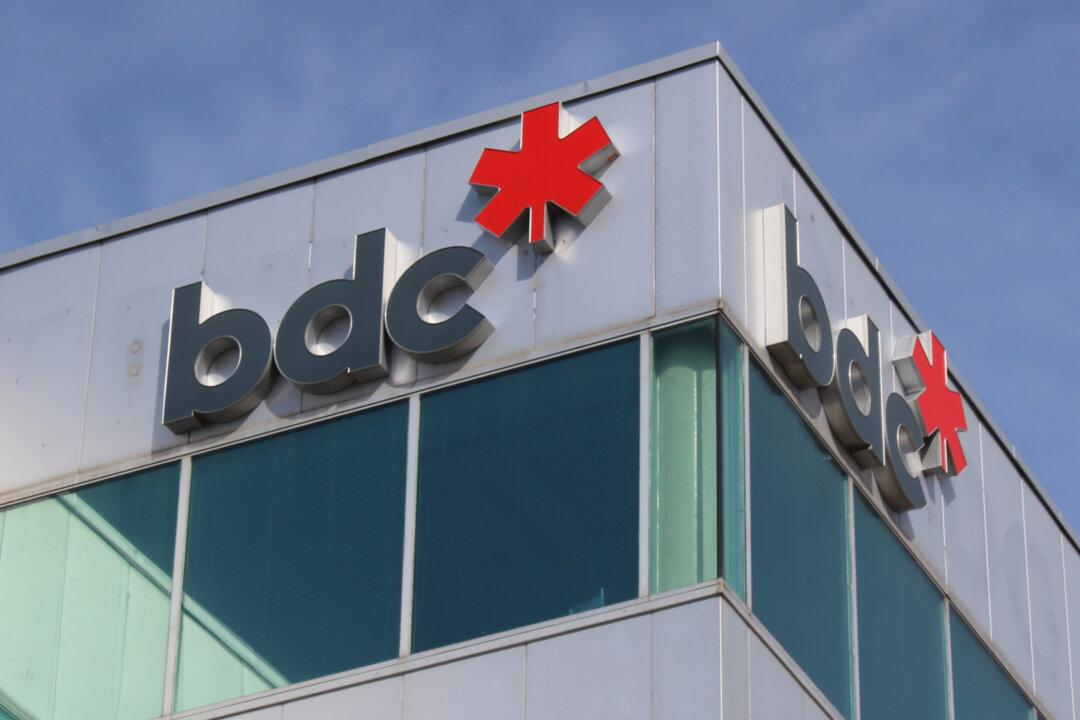The business of ensuring compliance with environmental, social, and governance (ESG) factors is booming, and a study by the Business Development Bank of Canada (BDC), a government agency that works with entrepreneurs and smaller businesses, suggests that its clients get on board the ESG train or be left in its dust.
However, ESG is facing considerable criticism and BDC does acknowledge the costs and administrative burden that compliance involves.
BDC’s study “ESG in Your Business: The Edge You Need to Land Large Contracts“ released March 30, which surveyed major buying organizations in the public and private sector and their small and medium-sized suppliers, concluded that 50 percent of suppliers say ESG leads to new business opportunities, 32 percent say it makes it easier to recruit and retain employees, and 31 percent say it improves access to financing and investment.
“The BDC confirmed what we’ve been saying in their headline when they say ‘small businesses left out of big contracts without ESG reporting.’ I find it very interesting in that they’re trying to spin it as a positive but that sense in and of itself it’s inherently very negative,” Krystle Wittevrongel, senior policy analyst and Alberta project lead at the Montreal Economic Institute, told The Epoch Times.
The BDC report also discusses obtaining environmental and diversity certifications. It provides guidance, as do consultants, on how to implement an ESG program and improve ESG performance.
One of BDC’s six business lines is “advisory services” provided by its own employees as well as external consultants. In the 2022 fiscal year, BDC earned revenue of $28.9 million from advisory services.
BDC spokesman Jean Philippe Nadeau told The Epoch Times that the advisory services include optimizing a company’s operations in terms of costs, energy, and resources, while also reducing waste.
Nadeau said that “BDC does not currently have an advisory solution specific to implementing ESG solutions or improving ESG scoring specifically” but that it does offer free tools to get businesses started.
A Boon for Consultants
Aswath Damodaran, professor of corporate finance at New York University’s Stern School of Business, told NTD News on March 11 that ESG is just a “marketing tool.”
“It [ESG] made a lot of people wealthy—bankers, consultants, measurement services—it does nothing for companies other than let them strut their goodness credentials,” he said.
ESG consulting has become an industry on its own. In Feb. 2022, Verdantix reported that the overall global ESG and sustainability consulting market is expected to reach US$16 billion by 2027, which represents a 17 percent compounded annual growth rate (CAGR) over the period from 2022 to 2027.
By comparison, Wittevrongel notes that the global market for DNA sequencing, which was estimated at US$6.5 billion in 2022, is projected to reach US$16 billion by 2030, with a CAGR of only 11.9 percent during those eight years.
“Every time you mandate something new or have these new requirements, there’s a flurry of lawyers or consultants or accountants or whoever, that are going to get rich, basically quantifying and reporting it,” Wittevrongel said.





